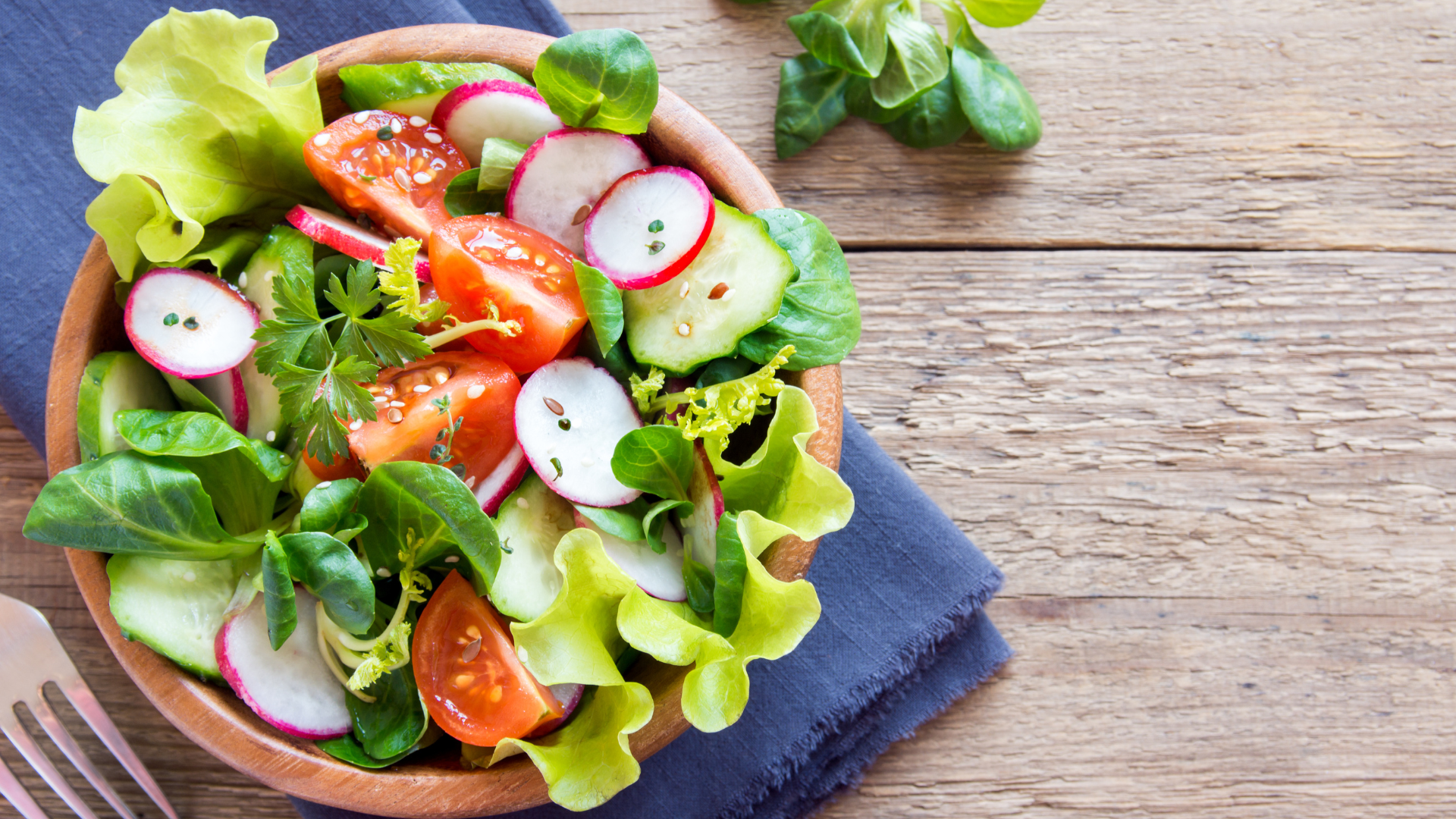
Salads can be a great addition to a weight loss plan, offering a variety of benefits that can contribute to your overall health and well-being. Here are some ways in which salads can support weight loss:
- Low in Calories: Salads, especially those made with leafy greens and non-starchy vegetables, are typically low in calories. This allows you to consume a larger volume of food with fewer calories, promoting a sense of fullness and satisfaction without exceeding your daily caloric intake.
- High in Fiber: Fiber is essential for promoting feelings of fullness and preventing overeating. Vegetables, fruits, and whole grains commonly found in salads are rich in fiber, which helps regulate digestion and stabilize blood sugar levels.
- Nutrient Density: Salads are a nutrient-dense food option, providing a wide range of vitamins, minerals, and antioxidants. Despite being low in calories, salads can offer a high concentration of essential nutrients, supporting overall health and well-being.
- Hydration: Many salad ingredients, such as cucumbers, tomatoes, and lettuce, have high water content. Staying hydrated is important for overall health, and foods with high water content can help contribute to your daily fluid intake.
- Increased Vegetable Intake: Including a variety of vegetables in your salads allows you to consume a diverse array of nutrients. Different vegetables offer different health benefits, and the variety can help ensure you get a range of essential vitamins and minerals.
- Controlled Portions: Salads can be a tool for portion control. By starting a meal with a nutrient-rich salad, you may be less likely to overeat during the main course, as the fiber and water content in the salad can help signal satiety.
- Healthy Fats: Adding sources of healthy fats, such as avocados, nuts, or olive oil, to your salad can enhance its nutritional profile. Healthy fats contribute to a feeling of fullness and can aid in the absorption of fat-soluble vitamins.
- Customizable: Salads are highly customizable, allowing you to create a meal that suits your taste preferences and dietary needs. You can incorporate a variety of proteins, including lean meats, fish, tofu, or legumes, to make your salad a more satisfying and balanced meal.
It's important to note that while salads can be a nutritious and weight-loss-friendly option, the overall balance of your diet and lifestyle also plays a crucial role in achieving and maintaining a healthy weight. It's advisable to include a variety of nutrient-dense foods, engage in regular physical activity, and maintain a sustainable and balanced approach to eating for long-term success.




Leave a Reply
You must be logged in to post a comment.